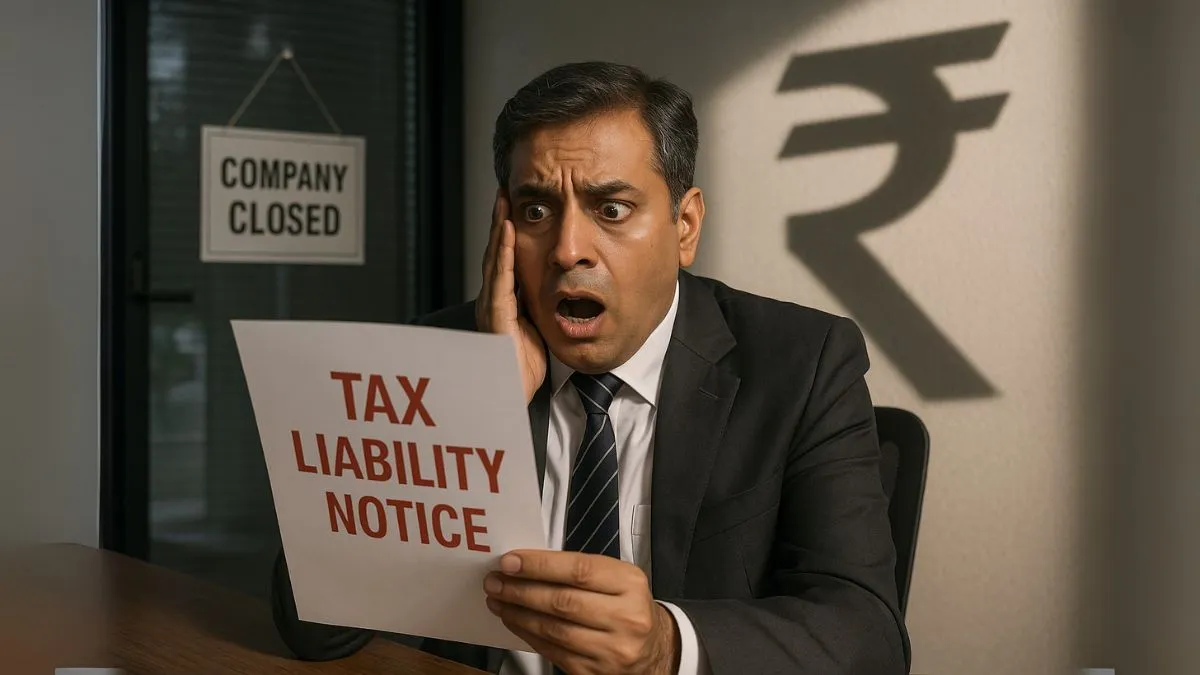
The Income Tax Act of 1961 contains numerous provisions to ensure that taxes are collected effectively. One such crucial section is Section 179 of the Income Tax Act, which specifically deals with the liability of directors of private companies in case of unpaid taxes. This section often comes into play when a private company is in liquidation or is unable to pay its outstanding tax dues.
In this blog, we will break down Section 179 of the Income Tax Act, its application, scope, & real-life implications while using easy-to-understand language. If you’re a director or planning to be one, understanding this section is essential to avoid future complications.
What is Section 179 of the Income Tax Act?
Section 179 of the Income Tax Act, 1961 is titled “Liability of directors of private company in liquidation”. According to this provision, when a private company fails to pay its tax liabilities, the Income Tax Department has the right to recover outstanding dues from the directors of the company.
The directors are considered jointly & severally liable for the unpaid taxes unless they can prove that the non-recovery cannot be attributed to their negligence, misfeasance, or breach of duty.
In simple words, even if the company itself has defaulted, the directors of the private company can be held personally responsible for tax dues, unless they have taken reasonable steps to ensure compliance.
Key Highlights of Section 179 of the Income Tax Act:
- Applies to Private Companies:
This provision applies only to private limited companies & not to public limited companies. - Liability of Directors for Company Tax Dues:
If a private company is in default, the directors are liable to pay. - Joint & Several Liability:
All directors are equally responsible. The department can recover from one or all. - Possibility of Defense:
A director can escape liability by proving that non-recovery was not due to any of their actions or omissions.
Why Was Section 179 Introduced?
The government introduced Section 179 of the Income Tax Act to prevent companies from evading taxes by liquidating or ceasing operations while leaving tax dues unpaid. Before this section, there was little recourse available to recover outstanding taxes once a private company shut down.
This section provides legal backing to recover outstanding dues from directors of private companies, ensuring that company structures are not used as a shield for tax evasion."
How Does Section 179 Work?
Let’s understand with a simple example:
- A private company, XYZ Pvt Ltd, has defaulted on its tax payments & is under liquidation.
- The Income Tax Department issues notices to the directors of XYZ Pvt Ltd.
- The department can recover outstanding dues from the directors personally unless the directors successfully defend themselves by proving no negligence.
Key Keywords Explained:
- Liability of directors of the private company in liquidation: When a company cannot meet its tax obligations, directors may face personal liability.
- Directors are jointly & severally liable for the tax due: Every director can be asked to pay the entire tax or part of it, as the department deems fit.
- Recover outstanding dues from directors of private companies: The government has the right to recover unpaid taxes from individuals, not just the company.
Tax Deduction Angle:
Interestingly, Section 179 of the Income Tax Act is also discussed in the context of providing tax deductions for businesses that purchase qualifying equipment & assets. While not directly related, it’s crucial to distinguish that Section 179 focuses on liability rather than deductions. The deduction you're referring to may be part of other sections governing depreciation or capital expenditure.
Recent Case Laws and Practical Insights:
There have been several instances where the Income Tax Department has exercised its powers under Section 179 to recover unpaid taxes from directors. It is increasingly common in cases where companies become non-functional or are liquidated without clearing tax dues.
Thus, if you are:
- A current director of a private company, or
- Planning to become one in the future,
It is essential to understand the implications of Section 179 of the Income Tax Act & ensure that your company maintains tax compliance."
Final Words:
Being a director of a private company comes with significant responsibilities, not just towards shareholders & employees, but also towards tax authorities. Section 179 of the Income Tax Act is a reminder that tax compliance is not just a corporate obligation but can have personal financial consequences for directors.
If you need help understanding your tax liabilities, directorship risks, or tax compliance for your business, let Callmyca.com guide you through it. Our team of tax experts can help you navigate tax complexities with ease—book your free consultation today & stay protected.











